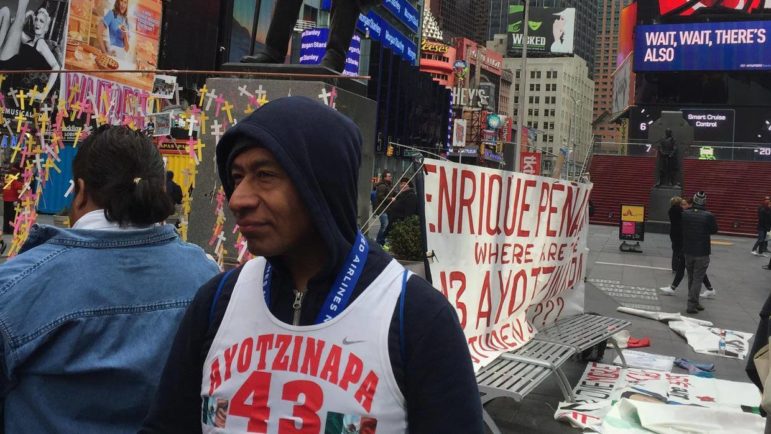
https://mail.google.com/mail/u/1/#inbox/1557cfbe3e8c929a
Antonio Tizapa, father of Jorge Antonio Tizapa Legideño, one of 43 teachers’ college students who disappeared in Mexico almost two years ago after being detained by local police.
“We will not rest. I will not rest. None of the parents will rest,” says Antonio Tizapa, father of Jorge Antonio Tizapa Legideño, one of 43 teachers’ college students who disappeared in Mexico almost two years ago after being detained by local police.
The high-profile case sparked protests from human rights activists and organizations in Mexico, the United States and other countries, all accusing the Mexican government of torturing suspects, covering up evidence, and mishandling the investigation.
Now, Tizapa, who has been competing as a runner in different races—including the 2015 NYC Marathon—to raise awareness about the 43 students, will run in the Coney Island 5K on Sunday, which is the 21-month anniversary of the mass kidnapping, and participate in other actions citywide to call on Mexican officials to reopen the investigation.
The Mexican government legally declared the 43 students dead, concluding that the teachers-in-training had been kidnapped and murdered by a drug cartel, and later incinerated at a garbage dump. But a panel of independent forensics experts rejected the investigation in April, criticizing errors and omissions that have undermined the case.
Tizapa, who maintains that his son is alive, said that the case embarrasses President Enrique Peña Nieto’s government, which is trying to change the violent image of Mexico by promoting attractive business opportunities for international investors.
“Kidnappings. Dismembered bodies. These things are really happening in Mexico. It is not a dream,” said Mr. Tizapa to City Limits. “And it isn’t fair that because of the government, the ambition of some people, that we are being oppressed.”
Mr. Tizapa said that government and economic interests have covered up and overlooked human rights cases in Mexico. And that is why he has taken to the streets of New York City to make sure that the stories of his 22-year-old son and the 42 other students are known all over the world.
In this sense, New York has become an international battleground between the Mexican government and human rights supporters. The city is a crossroads of human, political and economic interests. And over the last few decades, New York has become home to a growing number of Mexican immigrants and Mexico has established a wider diplomatic presence here. Many banks and businesses seeking to partner with Nieto’s government are also located in the city.
These competing interests, activists say, have made New York a strategic place for telling important human rights stories to the world. And different collectives from Mexico and the United States have been teaming up to reach influential people and organizations like the United Nations and Amnesty International to tell stories that are often censored in their home countries.
“We have spent 19 months without our sons. 19 months searching for them. 19 months demanding that they be returned alive. 19 months seeking justice,” Tizapa testified at the United Nations on May 16. “[W]e know they are not just 43. They are thousands and thousands hoping to get your help and support and solidarity.”
For both Tizapa and human rights activists in New York, the mass kidnapping symbolizes many of the problems that afflict Mexico today.
“This case represents what has happened to our families and many other people,” said Frank, a Mexican human rights advocate from the New York-based collective Somos los Otros (We Are the Others), whose last name is omitted to protect his identity. “It is an example of the problems that force many people to leave Mexico. A tragic reminder that their homes have been taken over by violence, drug trafficking and corruption.”
This weekend, Tizapa and supporters of the 43 missing students will reach out to New Yorkers through five actions, including a five-mile LGBT Pride Run in Central Park on Saturday, a protest in front of the Mexican consulate on Sunday, and a rally before the Copa America soccer final in front of MetLife Stadium in East Rutherford, N.J. Sunday evening.
“Even if Mexico hasn’t made it to the final, it’s good to show with banners and posters the reality of our country,” said Frank. “Not only reaching out to fellow Mexicans, but also reaching out to other people who are going to the stadium to support other national teams. We need to share our story with everyone.”
And this need to connect with others, see Mexico through the love and pain of the 43 student families, is empowering Mexicans in New York to speak out for their homeland.
“We are not in the shoes of the people who are suffering repression or injustice in our country,” Frank concluded. “But we try to put ourselves in their shoes. And we try to feel what they feel. And through their strength we find the courage here to stand up and speak out.”


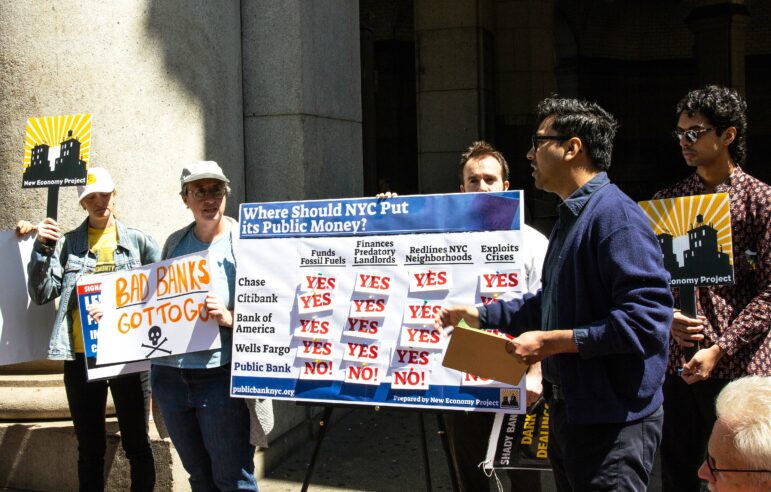

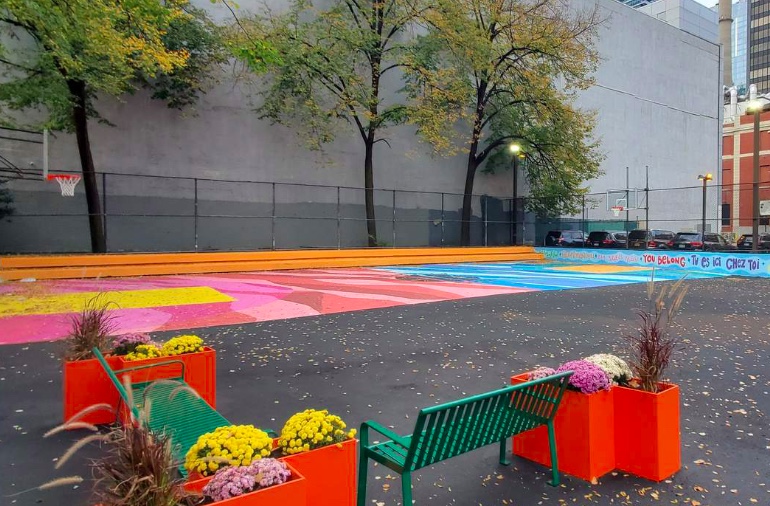
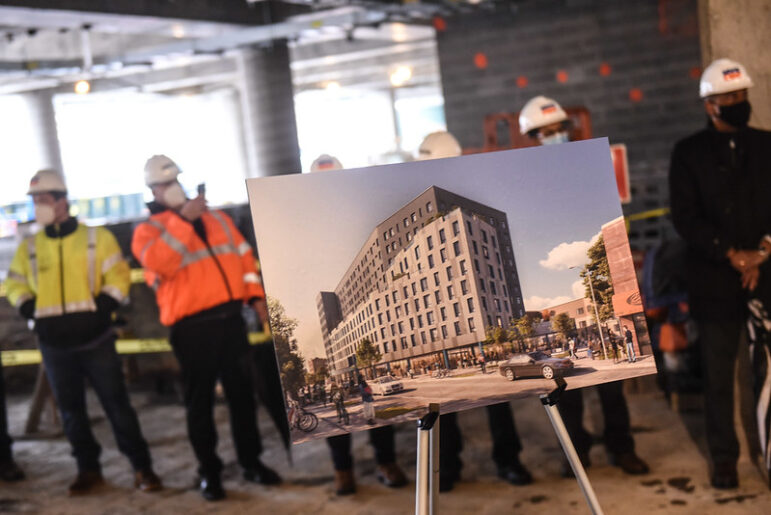
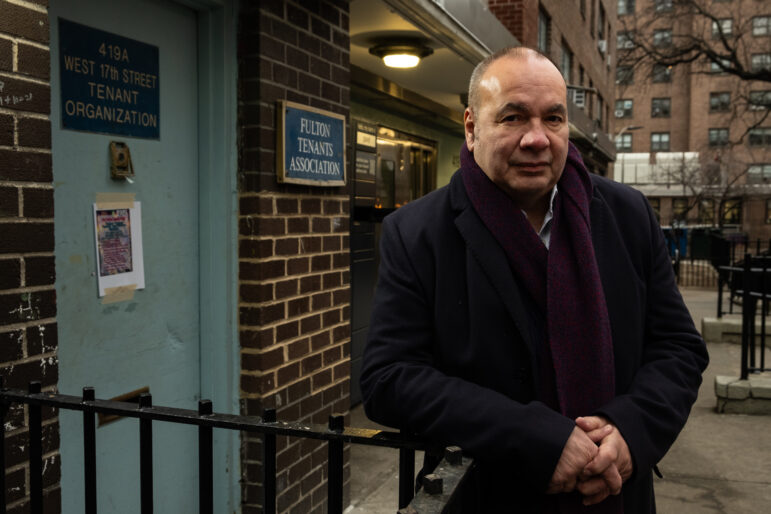


One thought on “From Protests to 5K Runs, Activists Vent Outrage in NYC Over Mexican Kidnappings”
What lovely people! Soon they will be kidnapping Americans.